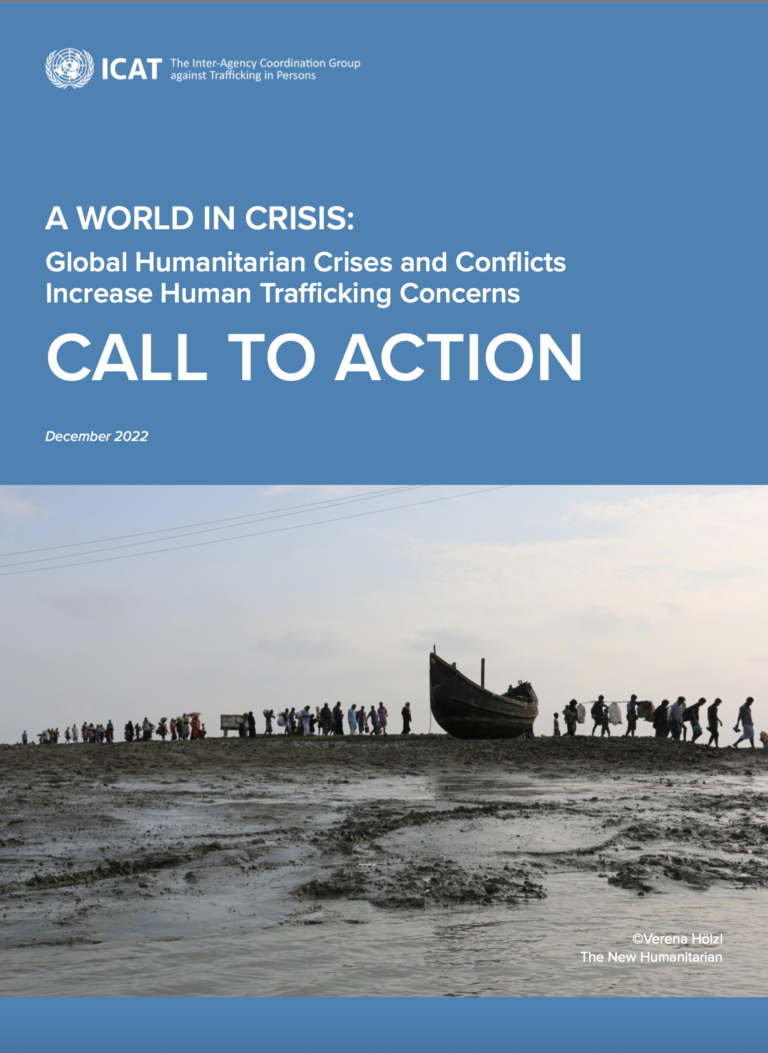The world is currently experiencing multiple crises with serious humanitarian consequences. Armed conflicts, terrorism, climate change-induced disasters, the lingering COVID-19 pandemic and other health emergencies, as well as rising economic and food insecurity are exacerbating existing vulnerabilities of individuals and communities globally while creating new risks and reducing livelihood options. Amidst this, evidence continues to build that humanitarian crises and conflicts lead to increased trafficking in persons and other serious human rights violations. Furthermore, the increased misuse of technology, including in times of crises, has broadened the geographical scope, helping traffickers to operate across borders and in multiple locations simultaneously.
Approximately two billion people, equating to over a quarter of the world’s population, currently live in conflict-affected countries. Refugees, internally displaced and other people affected by humanitarian crises or conflicts may encounter limited or no access to community support, education and health services, as well as limited financial resources or opportunities for income generation and decent work, making them more vulnerable to trafficking. Moreover, children who are displaced, unaccompanied oseparated from their parents or caregivers and support networks are particularly vulnerable to trafficking. In addition, conflicts weaken the rule of law and hamper the capacity to respond to crime and traffickers target people in conflict-af- fected areas or as they are forcibly displaced elsewhere.

